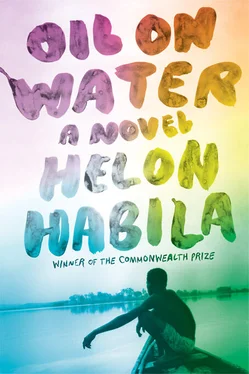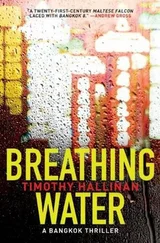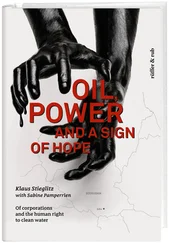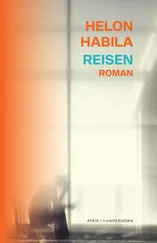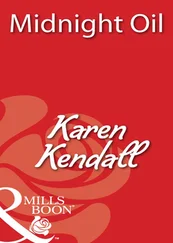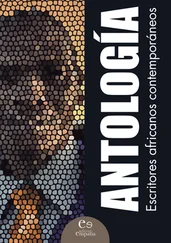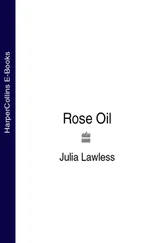— Journalist, you want to interview the rebels, well, here they are. There will be time for that.
I looked at the kneeling men. One of them, the eldest, with gray hair, the one in the middle, looked like he was finding it hard to focus, wiping his face and swaying, intoxicated by the oil fumes; then he pitched forward and puked into the muddy brown grass in front of him.
— Take them away, and make sure you bring them out here tomorrow morning for their morning shower.
— When can I interview them?
I was following the Major into his shed, the command shed. He turned and stared at me for a long time, thinking, then the anger left his face, to be replaced by a malevolent smirk. He put a hand on my shoulder.
— You — how can I be sure you are who you claim to be? Do you have any ID? Nothing? Not even a recorder, a pen, a notebook? What kind of reporters are you?
— We lost our things when your men sank our boat.
— Hmm. So far I have treated you like gentlemen. I am a gentleman, an officer and a gentleman. Ask my men. They love me because I am a fair man. But I have one question only for you: how can I know you are who you claim to be? That is all. Answer me that question and you are free.
He smelled of sweat and the marshes, and petrol. The petrol had left stains on his trouser legs and on his boots.
— We’re looking for the Englishwoman, for the story. That is all.
— I’m looking for the woman too, everyone is looking for her. You think you can find her if we can’t? Still, I don’t trust you. I can’t trust you, you see my dilemma? You have till tomorrow to think of something. Talk to the other guy. Tomorrow, I want proof. Answers. Otherwise I’ll have to lock you up with the rebels and treat you the same way.
— What of the old man and his child? They’re innocent, nothing to do with all these—
— Go. I have work to do.
— I must insist, Major.
— Insist? Did you say insist? Do you know what’s going on out there? There’s a war going on! People are being shot. In Port Harcourt oil companies are being bombed, police stations are being overrun, the world oil price is shooting through the roof. You insist! I can shoot you right now and throw you into the swamp and that’s it. Now get out.
— What can we do to help the old man and his son, Zaq?
— Nothing, my young friend. I wish it were that easy to intervene and change the course of things. It isn’t. We’ll observe, and then we’ll write about it when we can.
We lay side by side. The Doctor had given me one of the cots vacated by a sick soldier who had been moved to one of the huts for the night. Zaq and I were alone in the infirmary. Half of the structure was open to the elements, and not far away in the swamps we could hear the bullfrogs bellowing, we could see the glow of the gas flares like distant malfunctioning stars. Though it was humid and airless, our blankets were pulled to our necks — they were our only protection from the mosquitoes. The Doctor had apologized for the accommodation; the only alternative to the infirmary was the lockup, where the militants were being held under heavy guard, and as much as we wanted to interview them, spending the night cooped up in a tight hut with them didn’t appeal. Zaq was sleepless, restless, and though his voice was weak and raspy, he kept talking, keeping me from nodding off.
— You don’t regret being here, do you?
— I don’t know, Zaq. I’d have given a lot not to have witnessed the boy and his father being drenched by the Major.
— I’ve seen children snatched away from their mothers, never to be reunited. I’ve seen husbands taken from their wives and kids and sent away to prison. I’ve seen grown men flogged by soldiers in front of their kids. That’s how history is made, and it’s our job to witness it.
— And is it always like this?
— No, not always. I’ve also witnessed ordinary bystanders pull passengers from burning cars, I’ve seen judges sentence generals and politicians to hard labor, without fear. I’ve seen students stand up to soldiers and policemen, protesting against injustice. If you’re patient, you’ll see those moments too, and you’ll write about them.
We watched the flares shake in the wind, wavering and dimming, but always regrouping to shine on again; we listened to what sounded like singing far away in the distance. Across the water a dog, or a hyena, howled and was answered by other howls. Then for a moment there was silence.
— Tell me, Rufus, why did you become a journalist?
My father is standingover me, gently shaking me. Outside the night is turning to day in a pageant of orange and pink colors. In the open doorway is my mother, and in her hand is a little wrap. I packed my bag the night before; now I pick it up and my father leads me past the living room, past the kitchen, past my sister still asleep on her little mat in the corridor between my parents’ bedroom and the kitchen, to the waiting motorbike outside. My mother rushes forward and hugs me. As the okada flies through the early morning toward the station where I’ll take the ferry to the next village, and then the bus to Port Harcourt and my new life as an apprentice photographer, it is Boma I miss, and it is to her I make a promise: that I’ll return safe and sound, and our life will continue, happy and free. The plan is my father’s; he has lost his job, just like half the town. They all worked for the ABZ Oil Company, and now the people, once awash in oil money, watch in astonishment as the streets daily fill up with fleeing families, some returning to their hometowns and villages, some going on to Port Harcourt in the hope of picking up something in the big city. Many years later I’ll suddenly run into an old classmate, a half-forgotten neighbor, destitute on the backstreets of Port Harcourt. Get a trade, my father said, get something you can do with your hands, and this will never happen to you. Cast thy bread upon the waters. Recently he has turned religious. He wakes us up at six a.m. daily to seek God’s intervention in our affairs. He has been contemplating going back to his old profession of teaching and has asked God to show him if this is the right thing to do, but God still hasn’t replied, and daily his doubt increases. I don’t know how or when he met Udoh Fotos, how or when they arranged for me to go to Port Harcourt and live with Udoh Fotos as an apprentice and learn the trade — all I know is that the day I turn sixteen my father sends me off to Port Harcourt to learn photography. In my first year I do not learn much about light and darkness, or the many lenses packed in the backroom of Udoh Fotos’s studio, or the difference between a Leica and a Canon and a Kodak, but I learn from Mrs. Fotos how to cook rice and garri and how to sweep the junk-filled three-bedroom house and how to bathe the four rude shin-kicking children every evening and how to wake up at six a.m. to go to the public tap seven times to fetch water to fill the plastic drum in the kitchen. I grow thin. I develop a weary, tense, animallike demeanor. In those early months I would happily have run away if I’d had the money, and if I’d known how to negotiate the myriad side streets and alleyways of the shabbiest section of Diobu, Port Harcourt. And later, when I am able to run away, I am checked by the question of what I will tell my father. For I have realized that he has sent me here to become a man, so that I can see how harsh and unfair and difficult life is — and if I can stand it, I might have a chance. Three years later, at the end of my apprenticeship, when Udoh Fotos hands me a flimsy certificate with my name scrawled across it and his spidery signature at the bottom, I understand why apprentices like me at the end of their training, or servitude, throw what they call a Freedom Party. In those three years my father comes only twice to visit me, and I go to visit home only once.
Читать дальше
